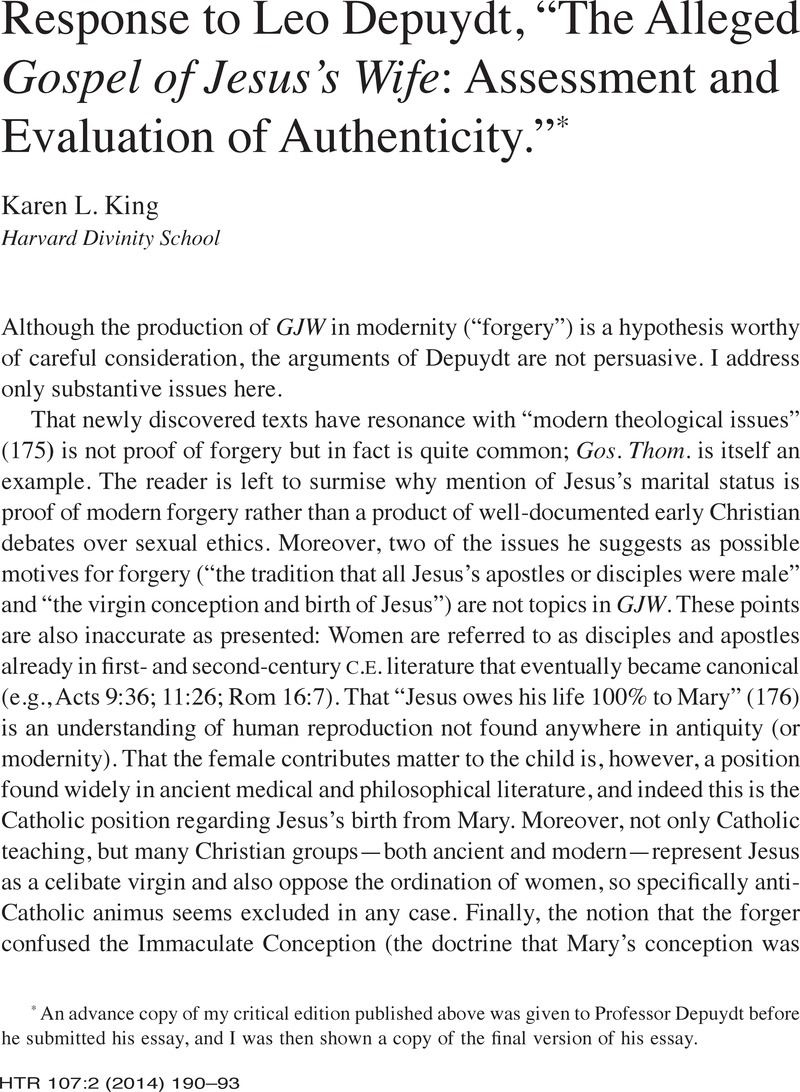Article contents
Response to Leo Depuydt, “The Alleged Gospel of Jesus's Wife: Assessment and Evaluation of Authenticity.”*
Published online by Cambridge University Press: 10 April 2014
Abstract

- Type
- Articles
- Information
- Copyright
- Copyright © President and Fellows of Harvard College 2014
Footnotes
An advance copy of my critical edition published above was given to Professor Depuydt before he submitted his essay, and I was then shown a copy of the final version of his essay.
References
2 Depuydt writes, for example: “The deviations do not in the least affect the striking individuality of the phrases as distinct from all other possible phrases of the Coptic language” (180). In the line-by-line analysis, he himself repeatedly notes that not every word or phrase in the text comes from GJW.
3 For further discussion, see my article above, 144.
4 For example, regarding GJW →5, Depuydt writes: “The conclusion is obvious. If just about every word and phrase in the Text [GJW] was taken from the Gospel of Thomas as I am convinced it was, then the masculine ‘he (will be able)’ must have been changed into the feminine and the negation must have been removed” (185). The “obvious” conclusion here, however, follows only if one accepts his premise. The analysis is not evidence of forgery but results only from the premise of forgery.
- 5
- Cited by


